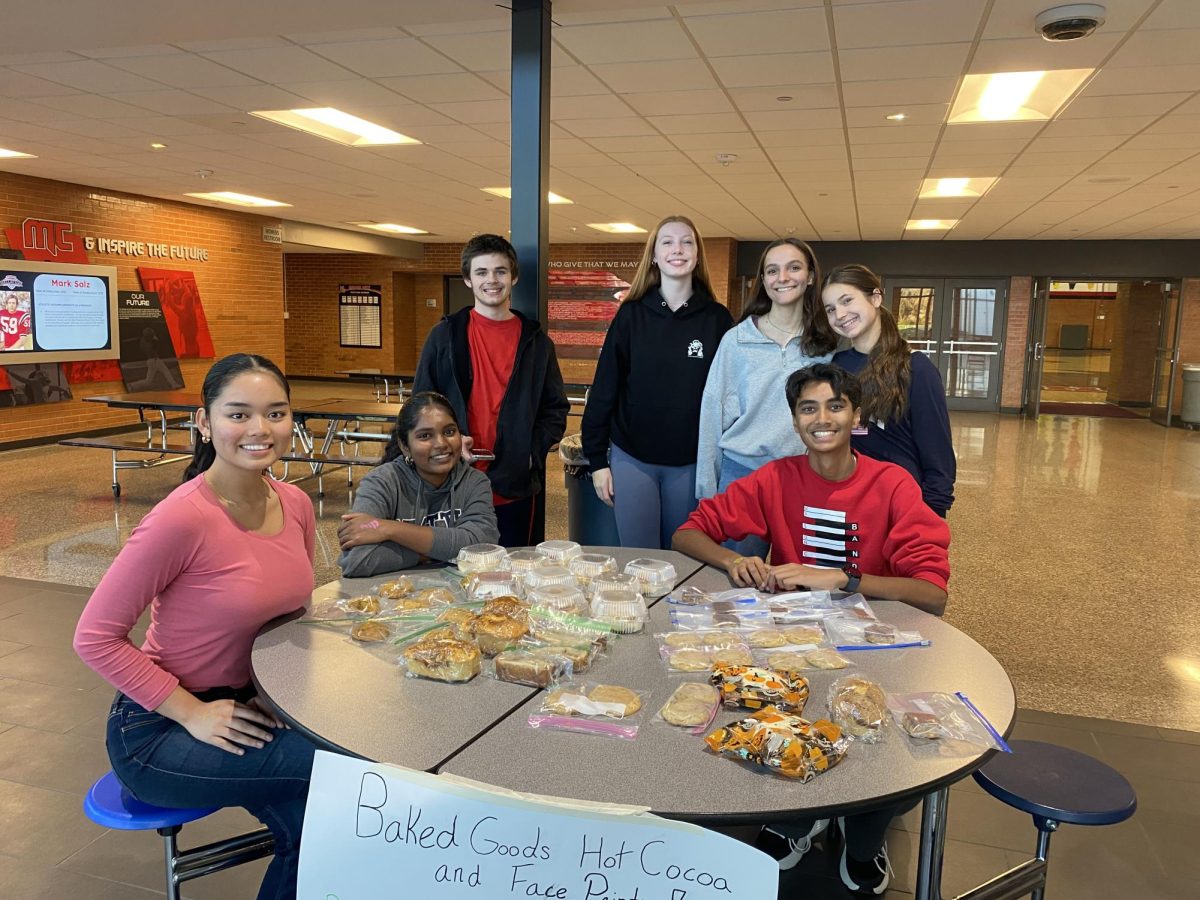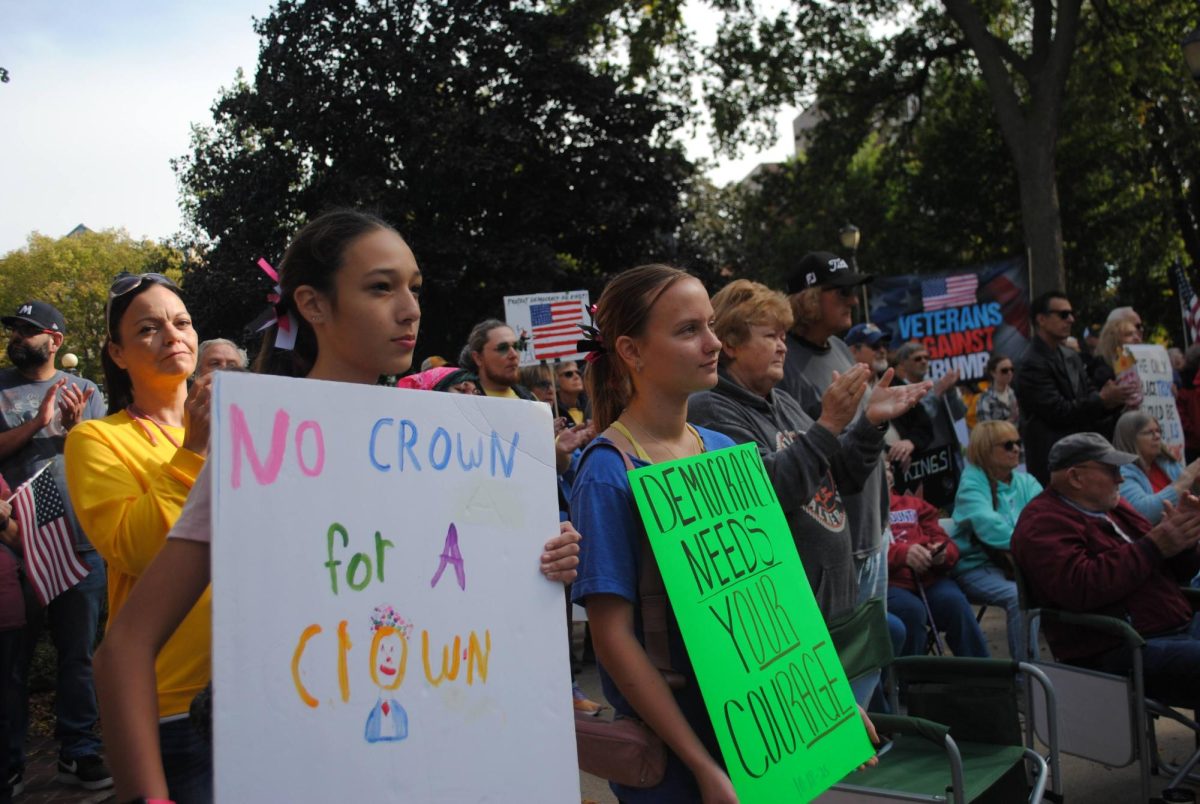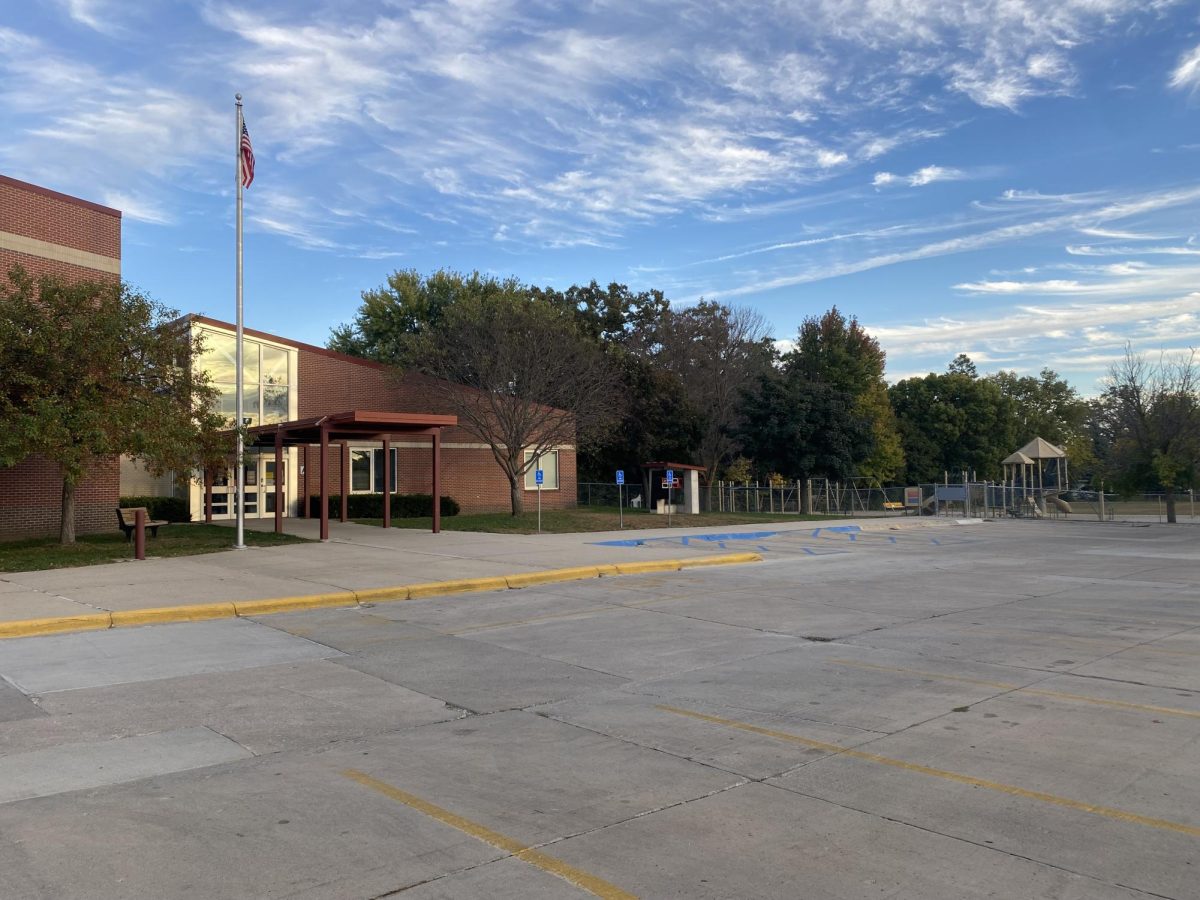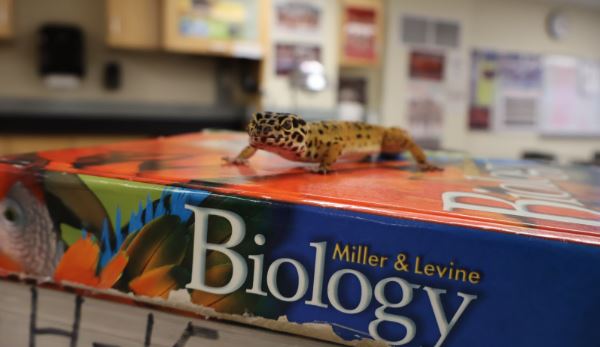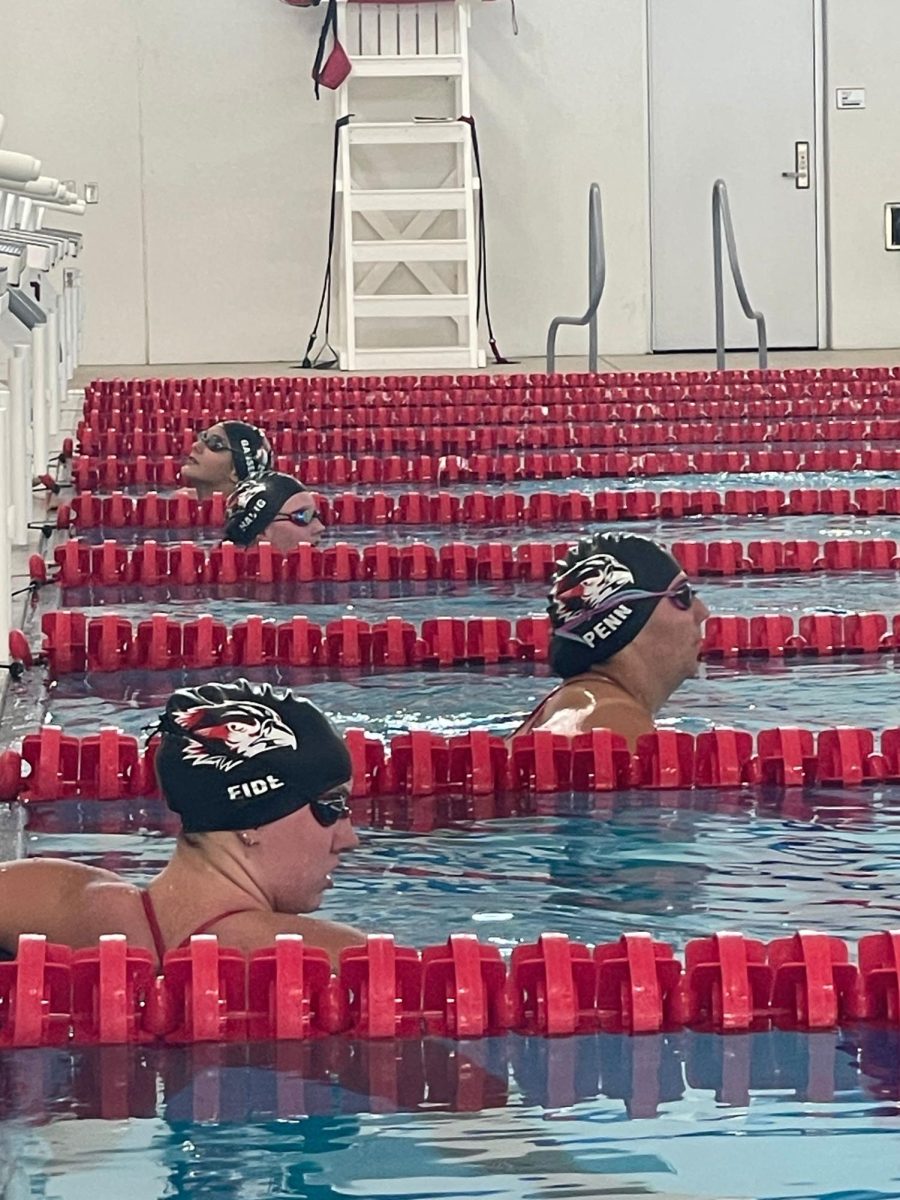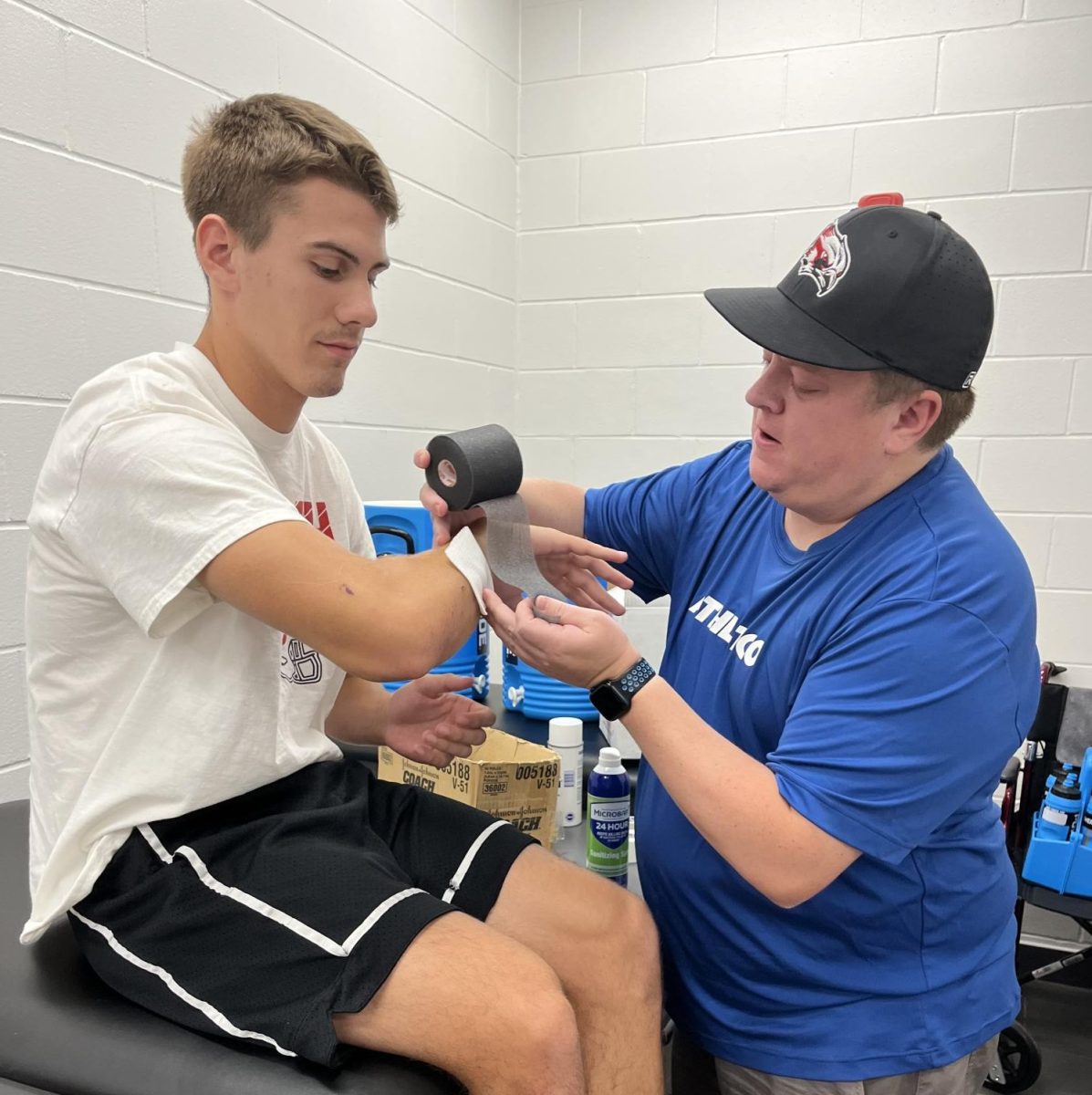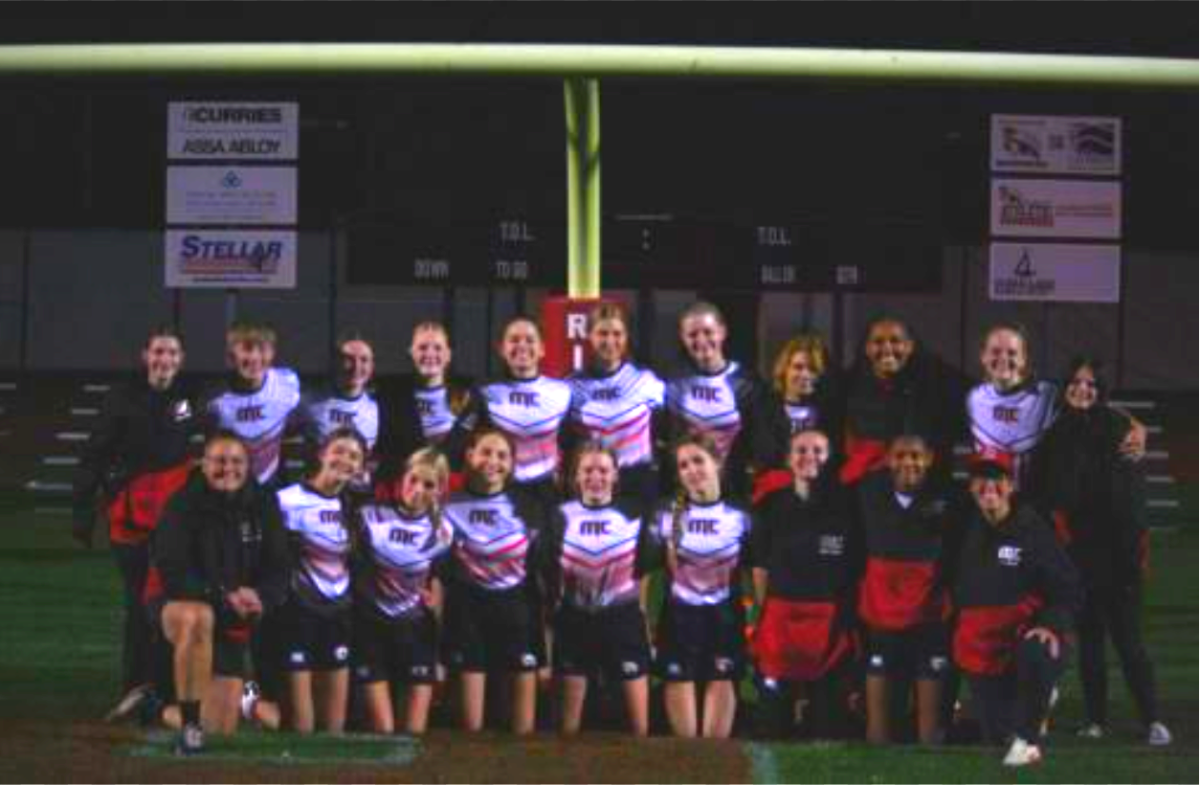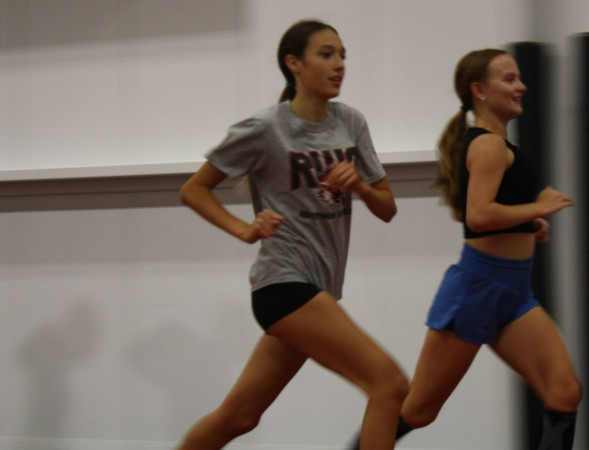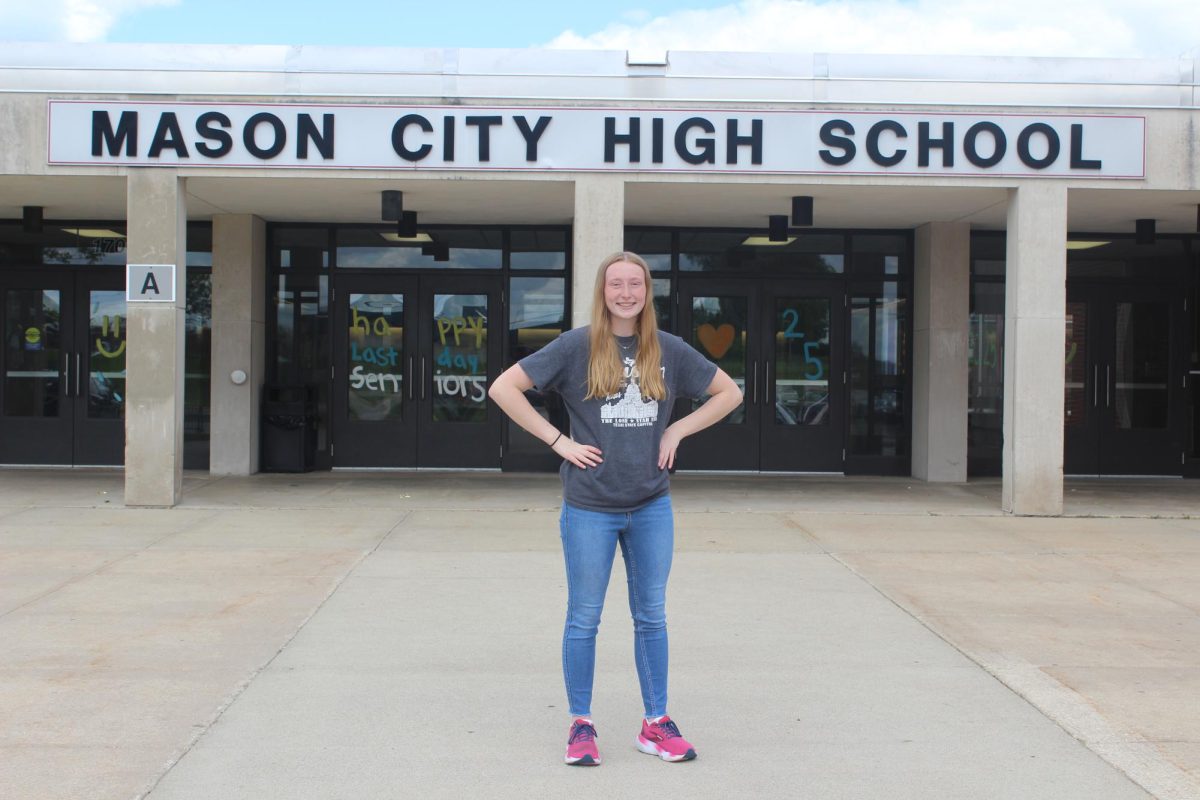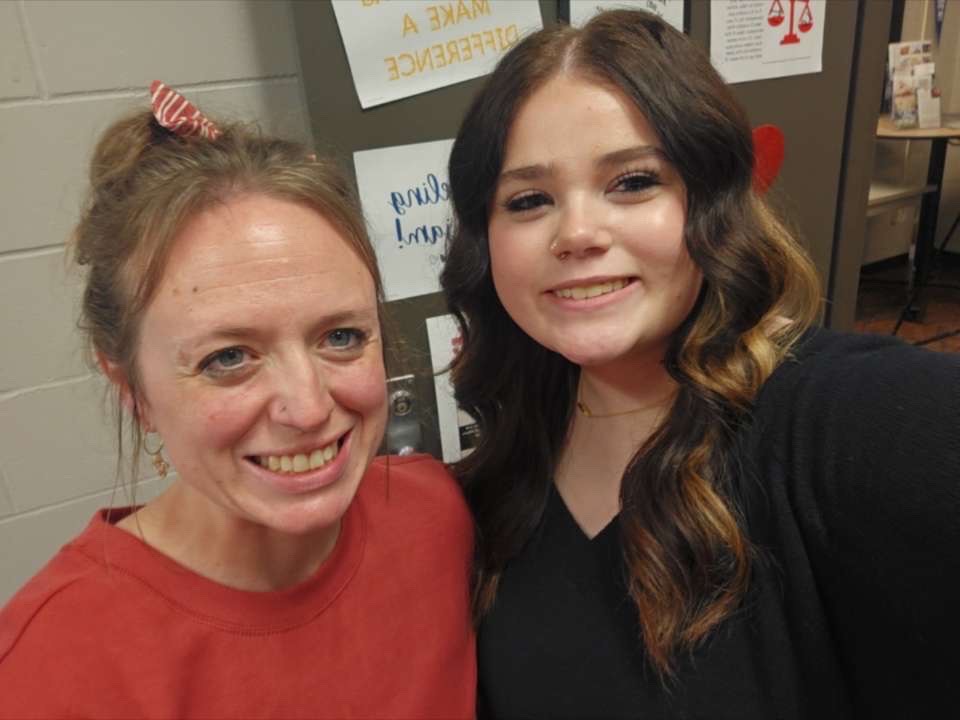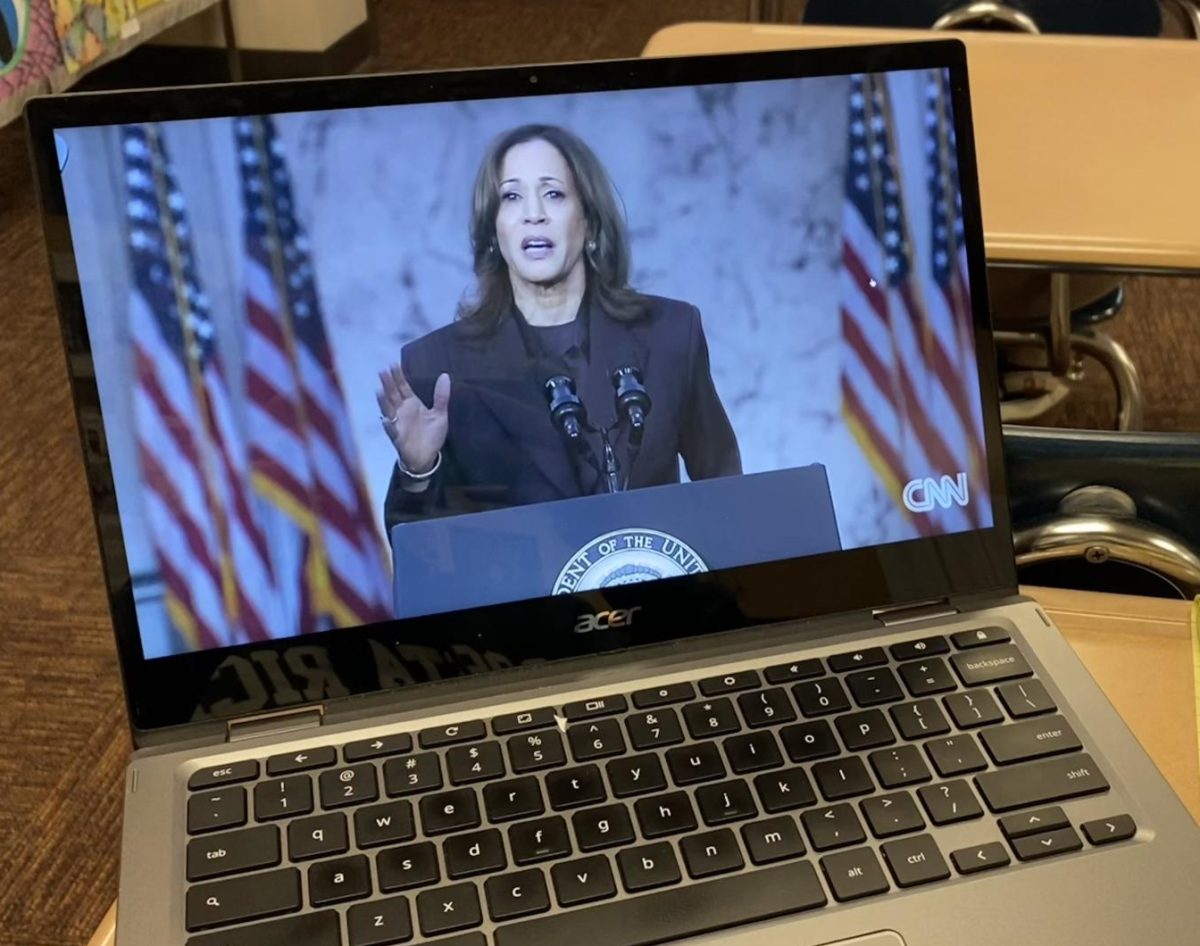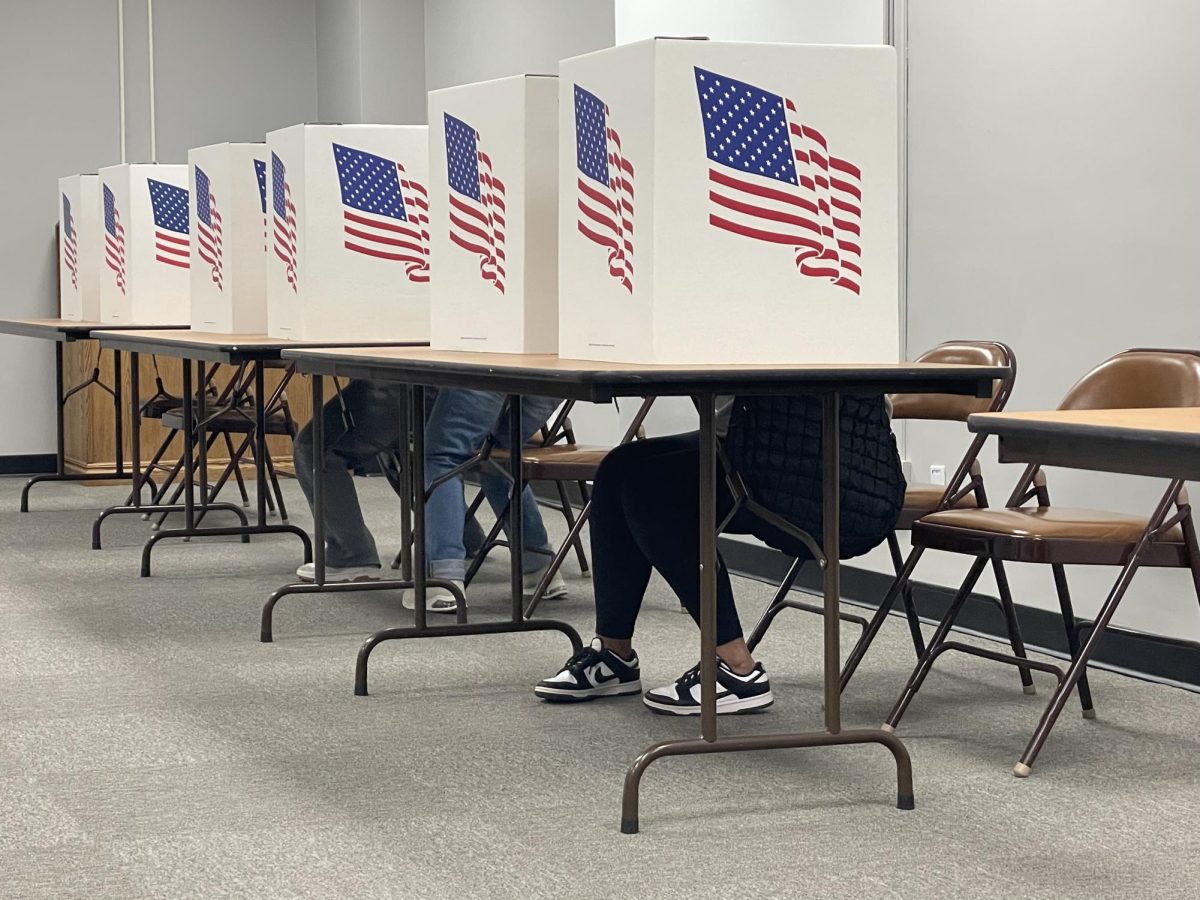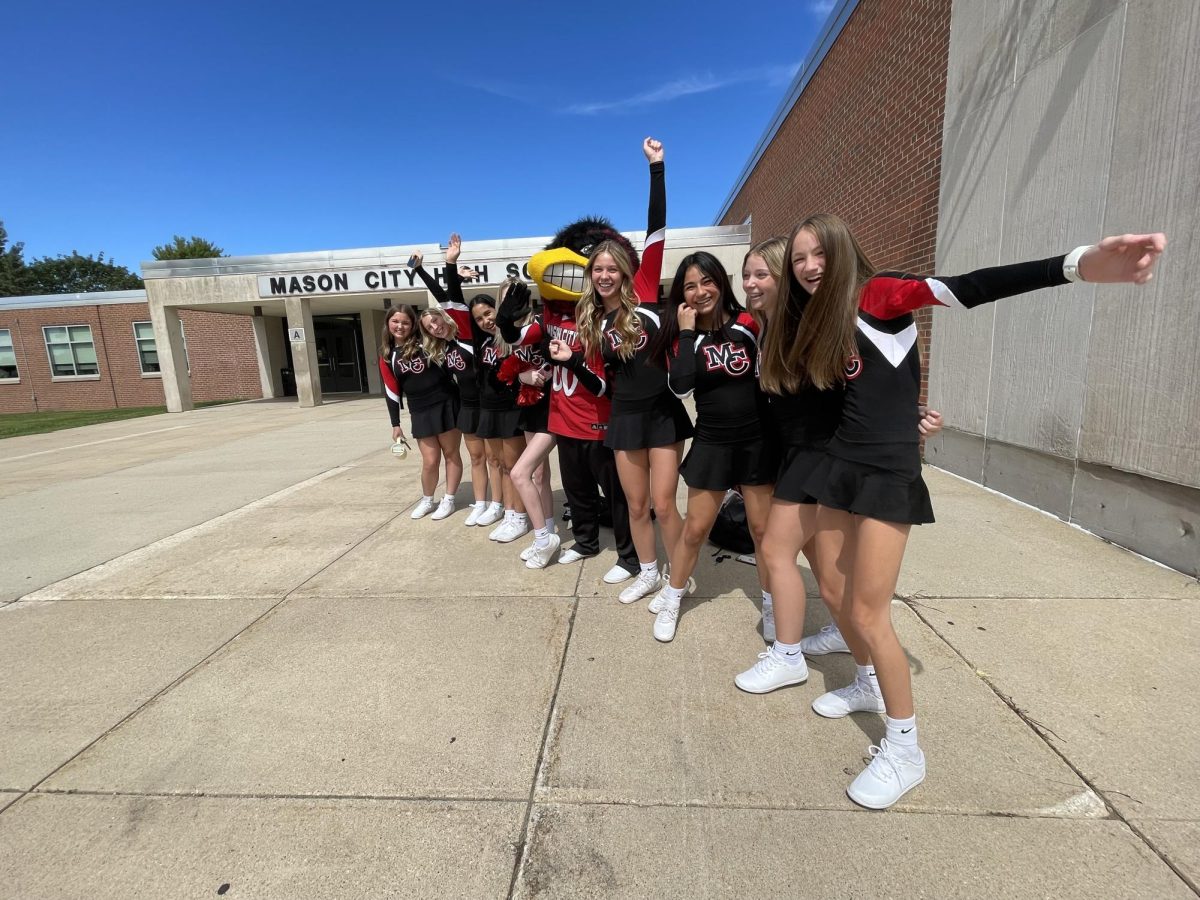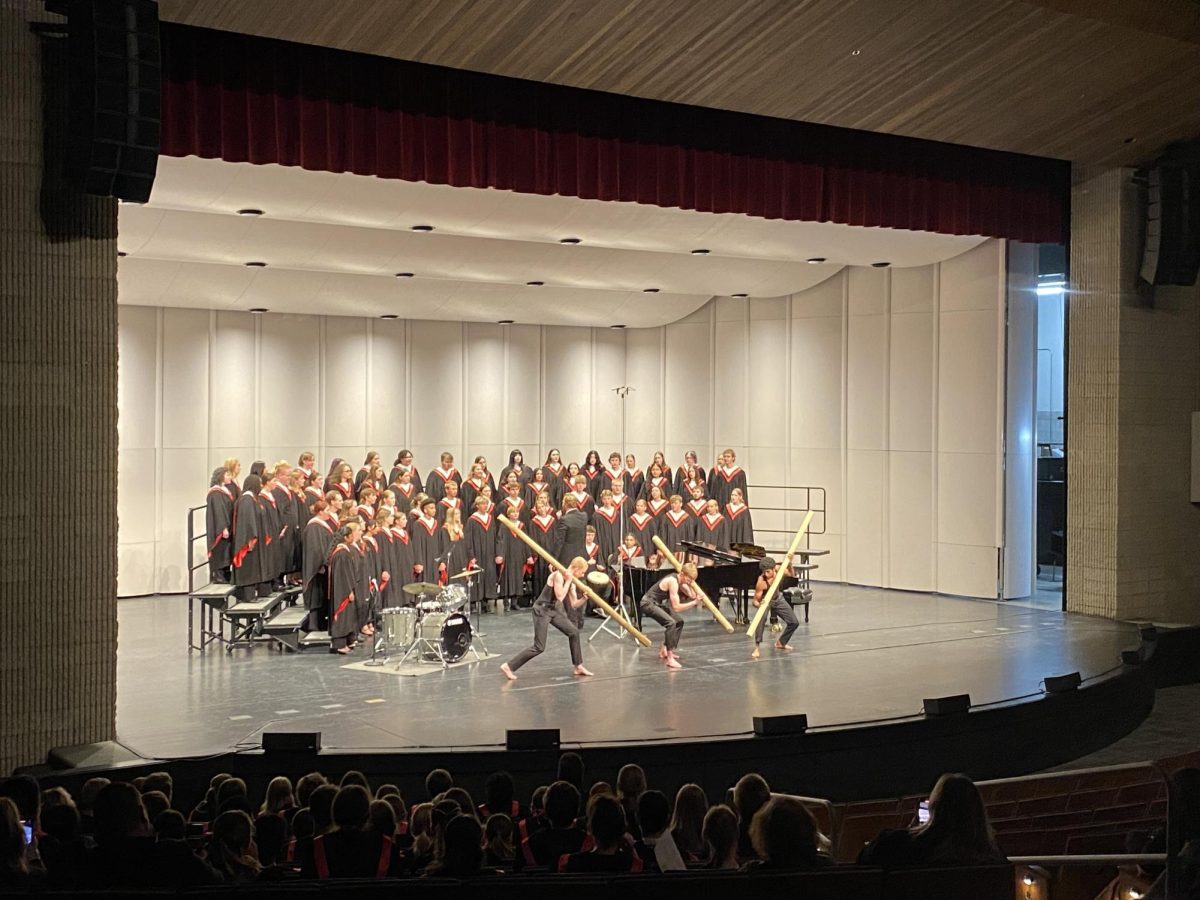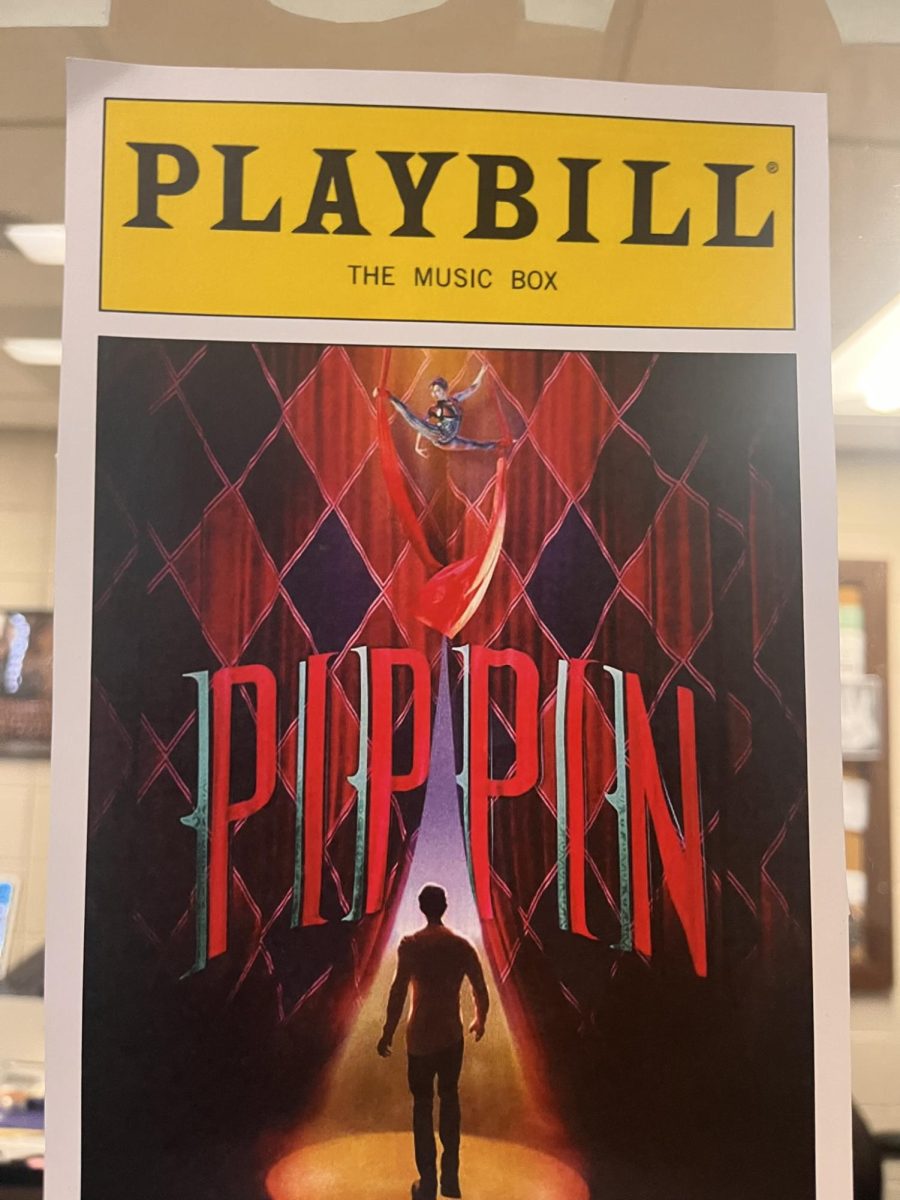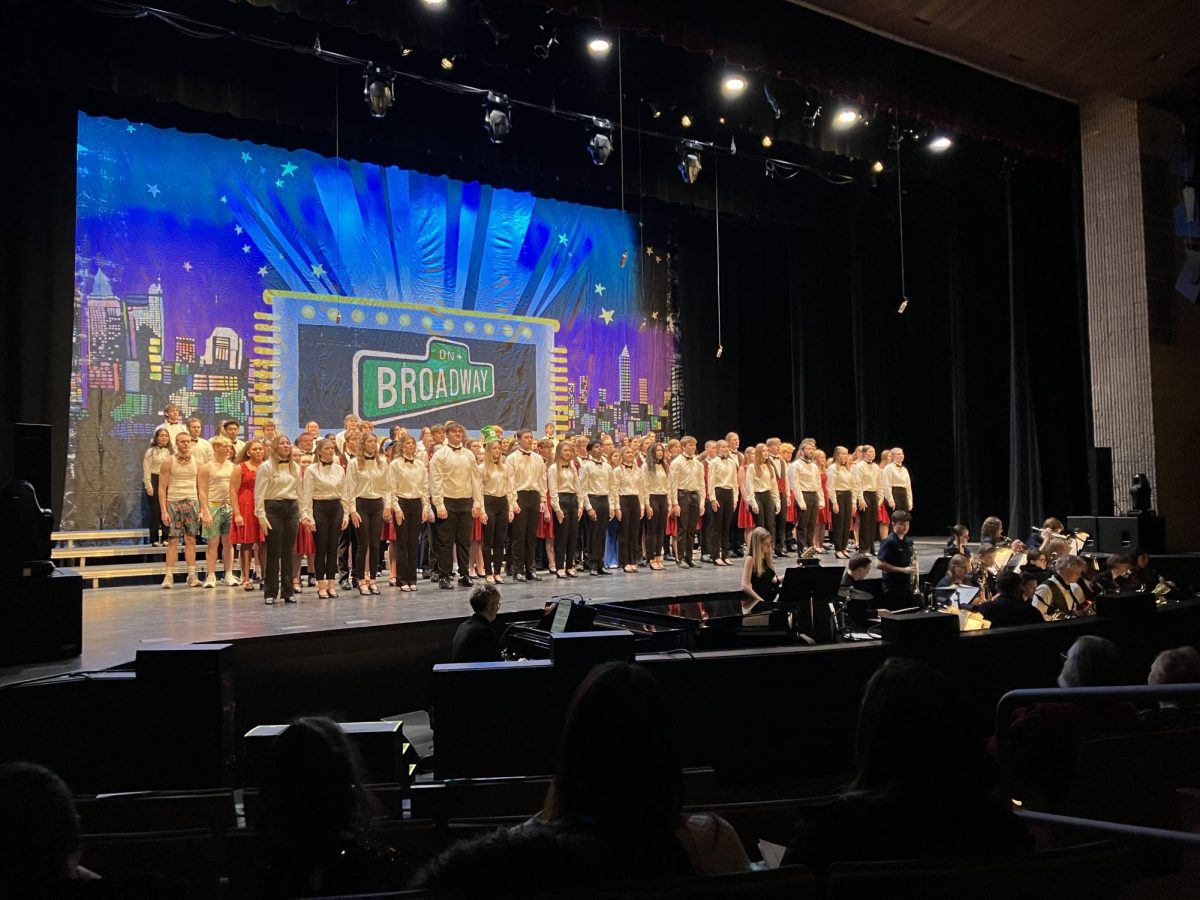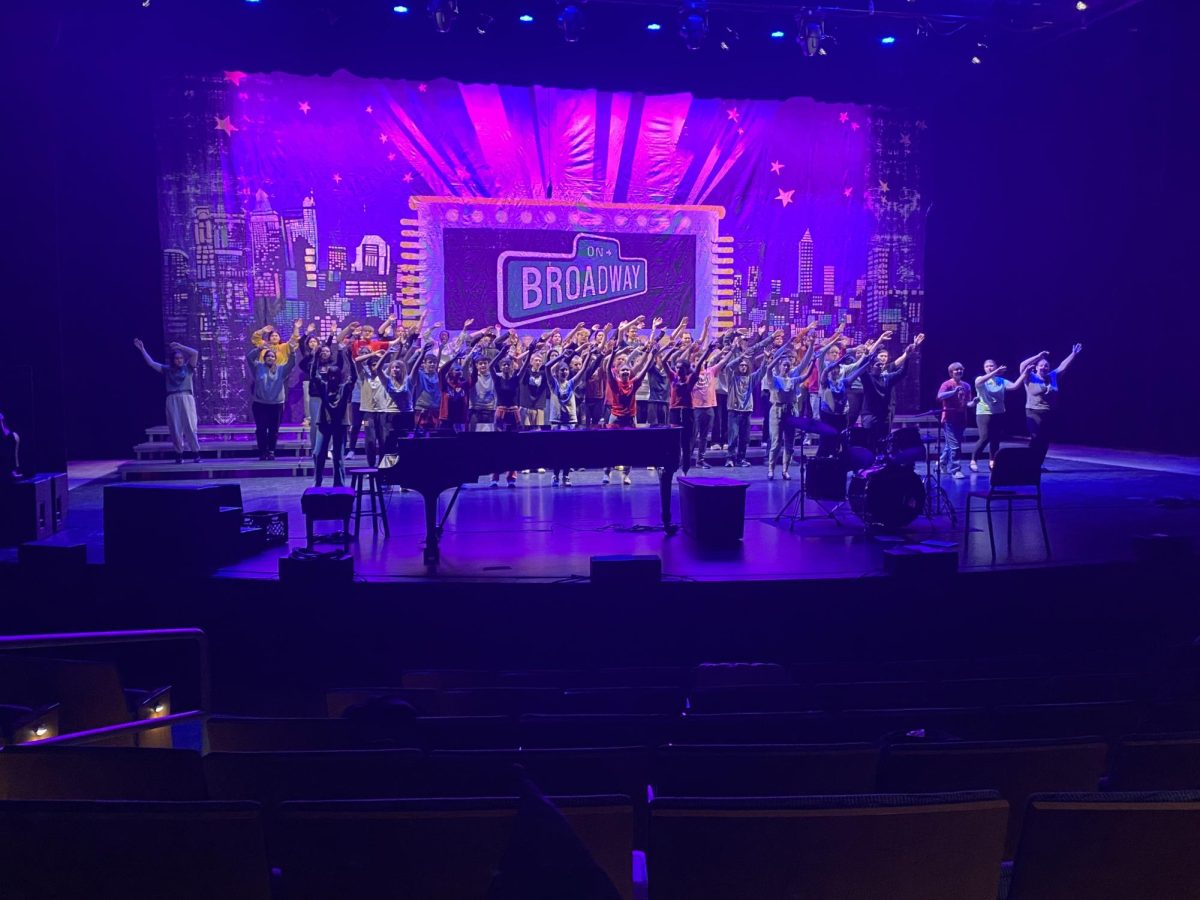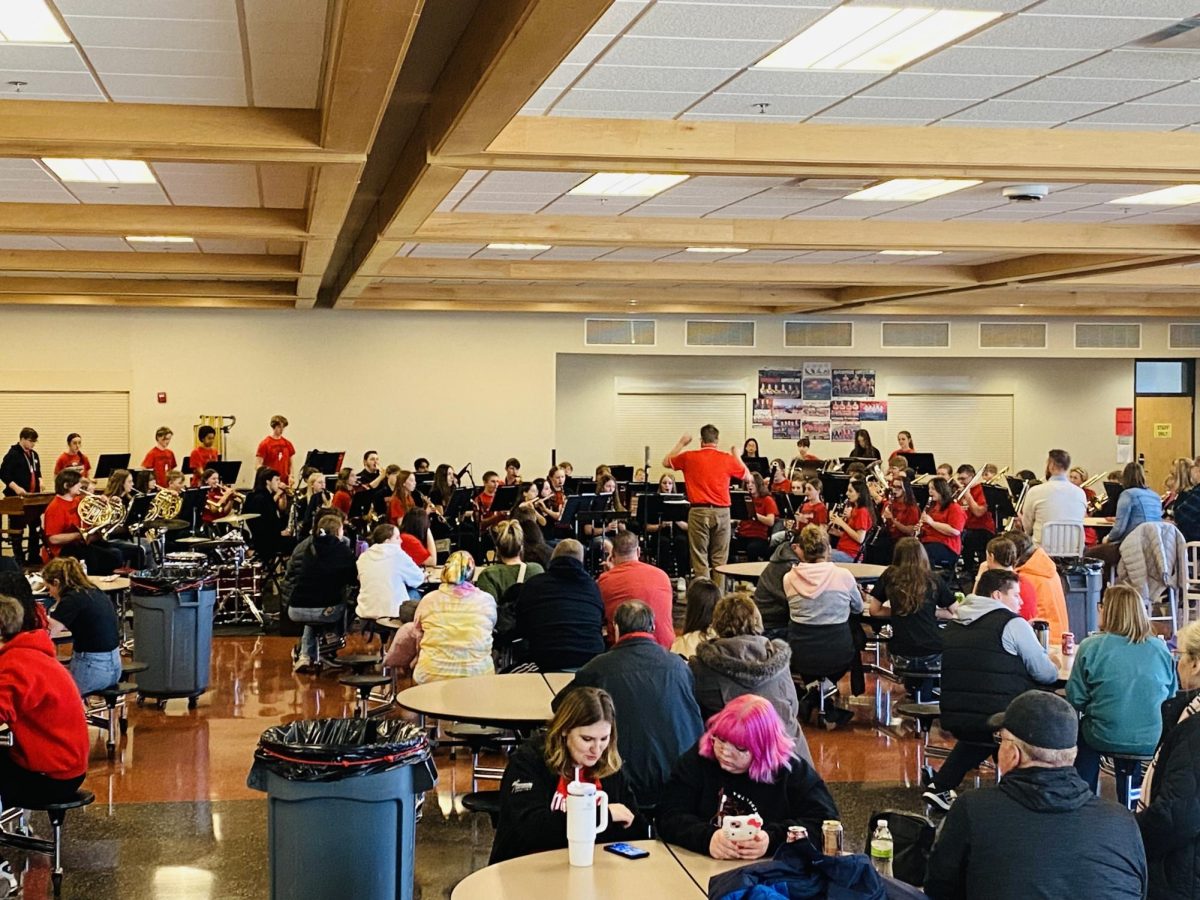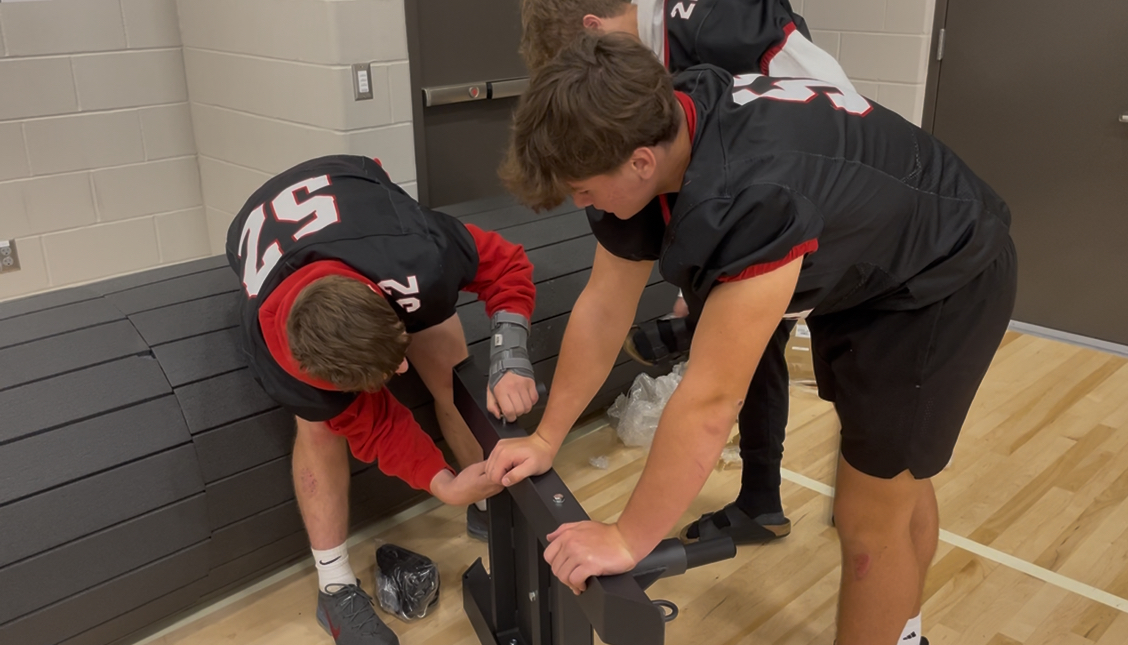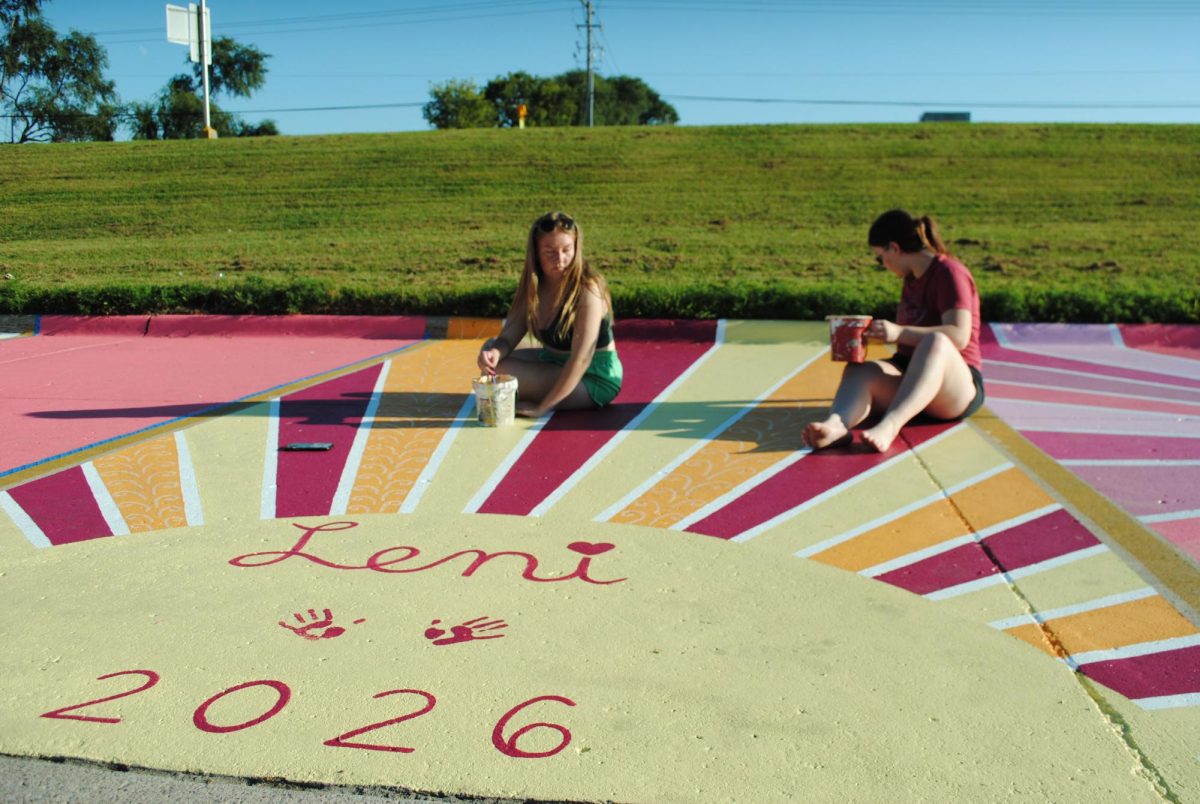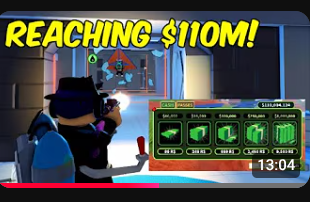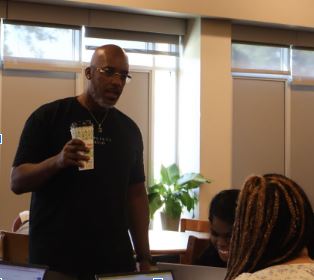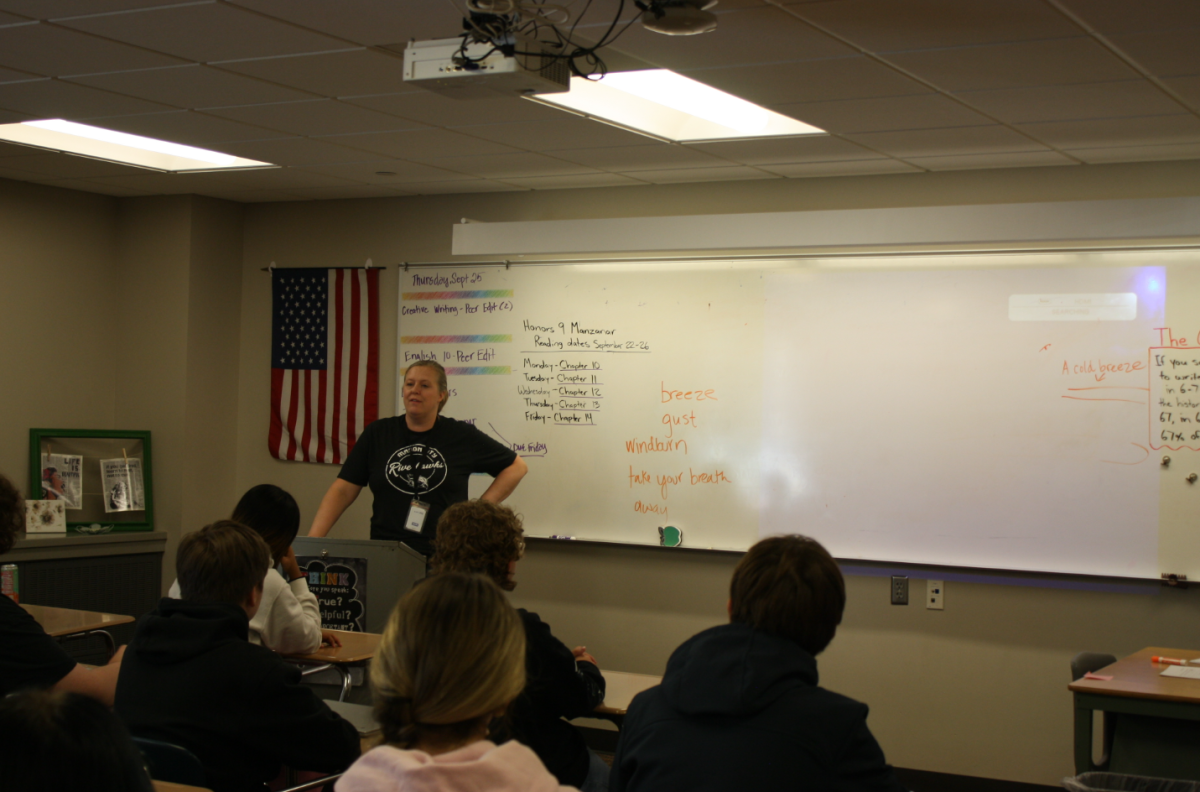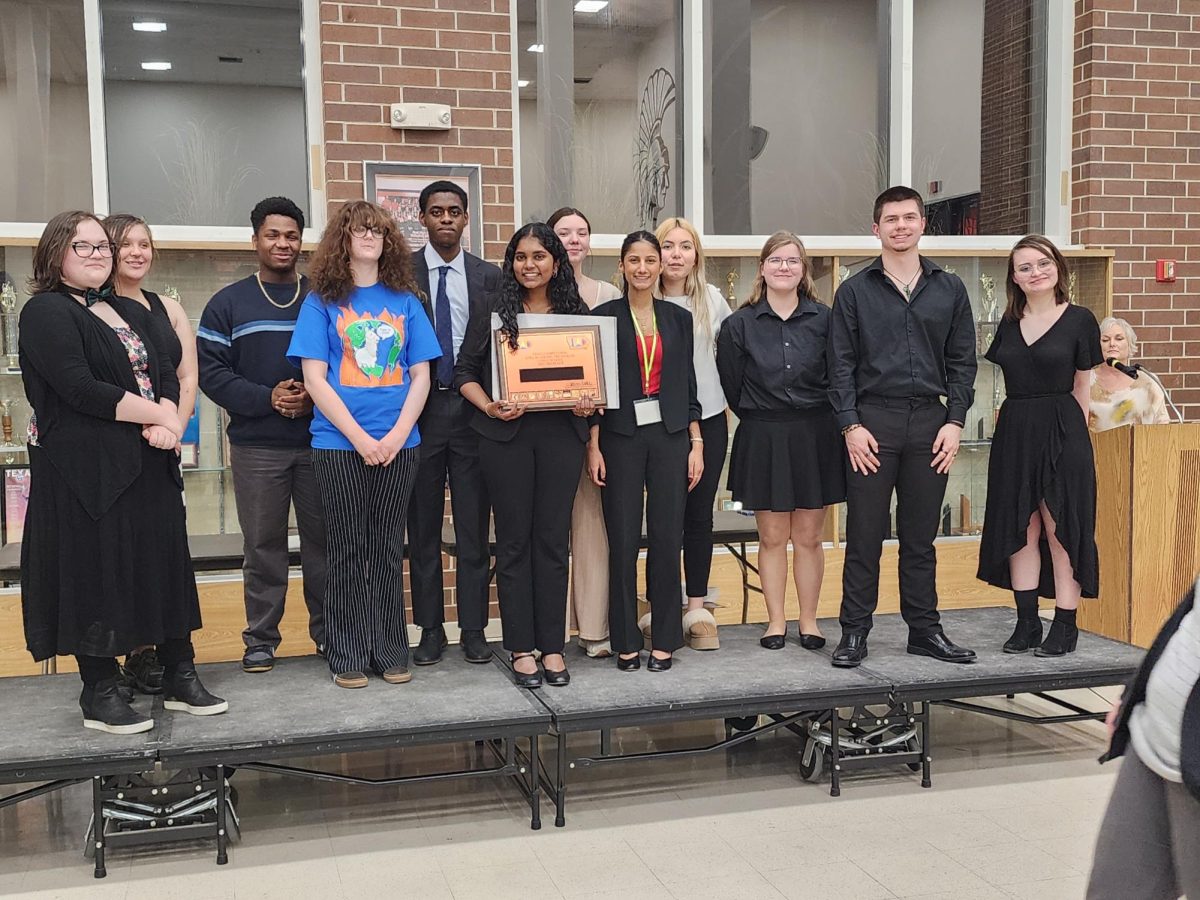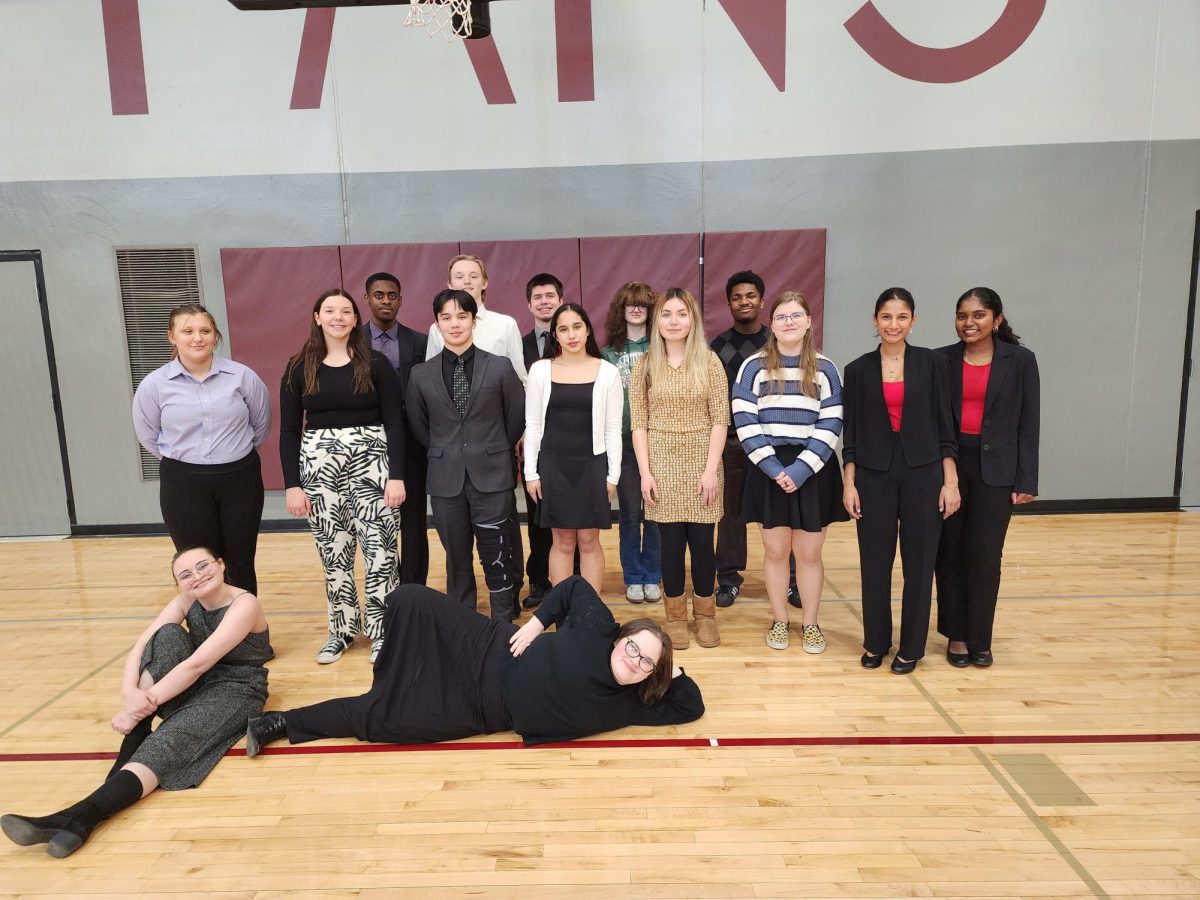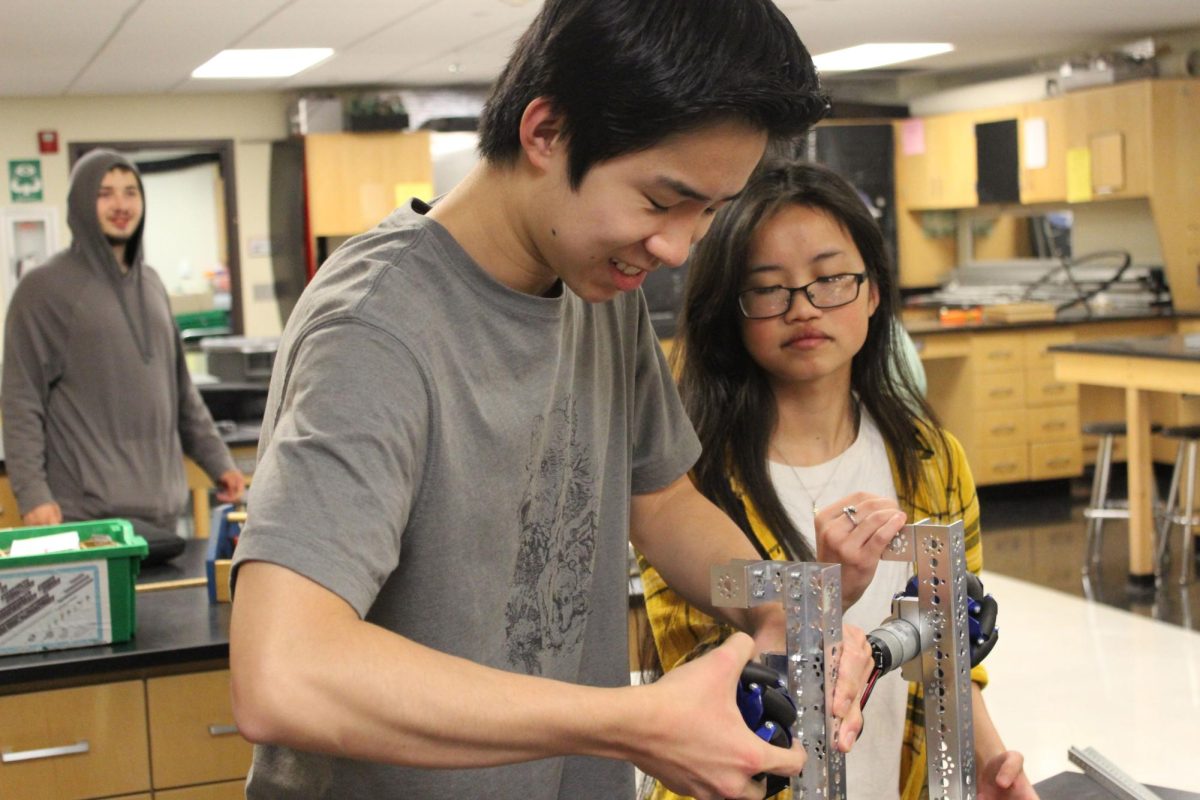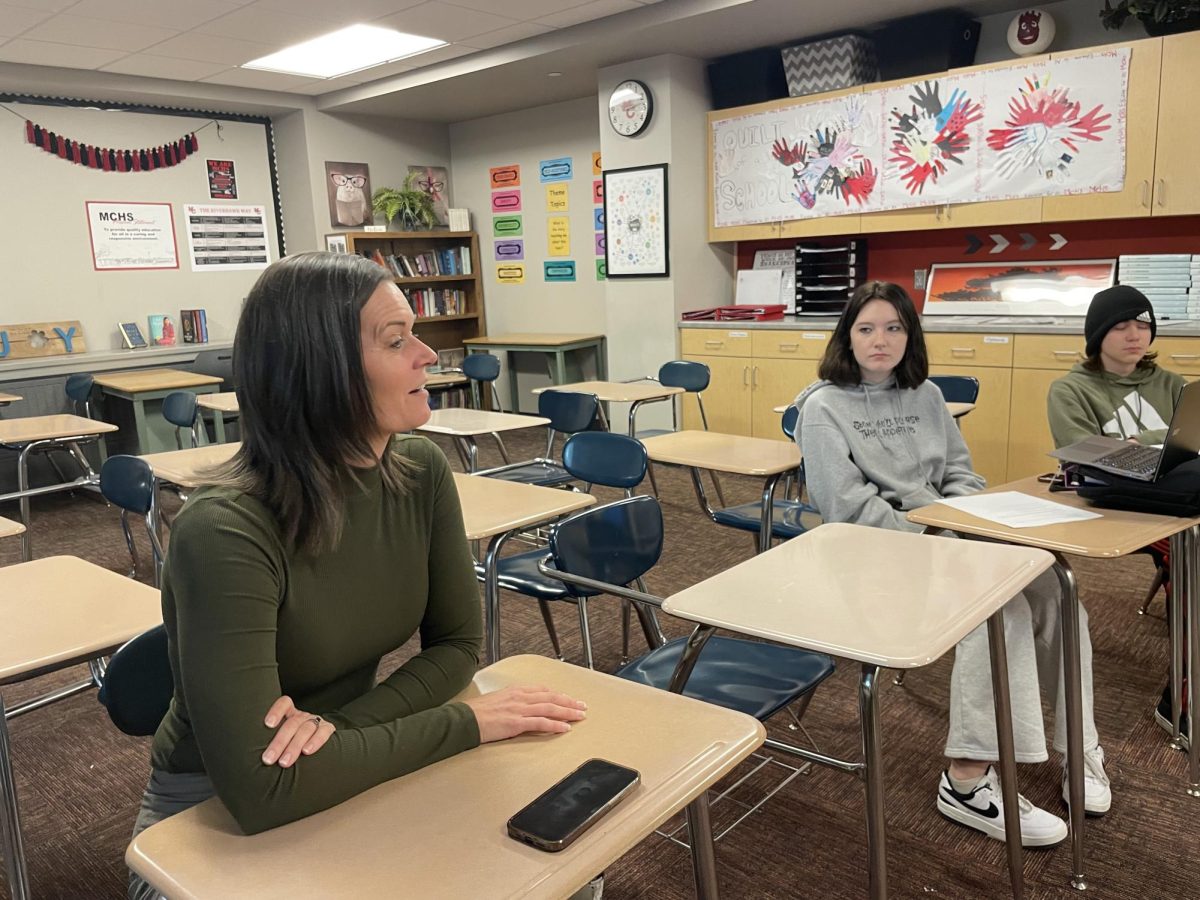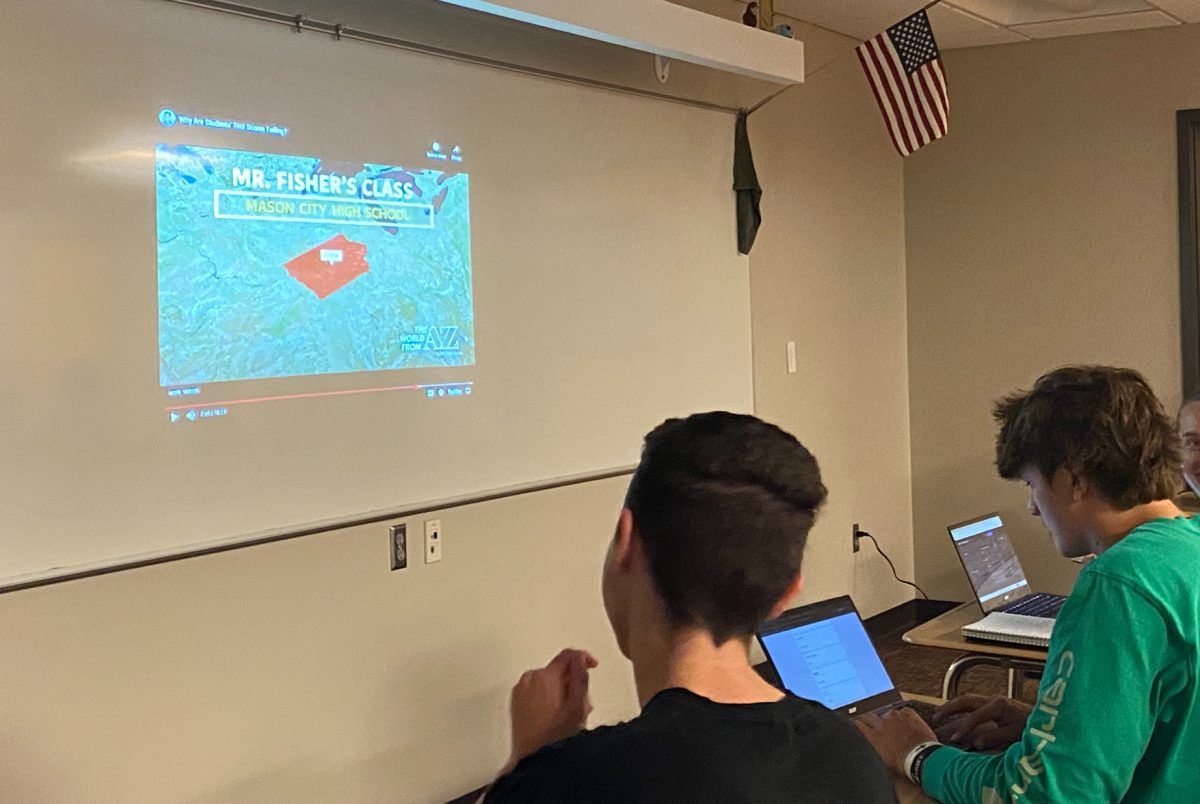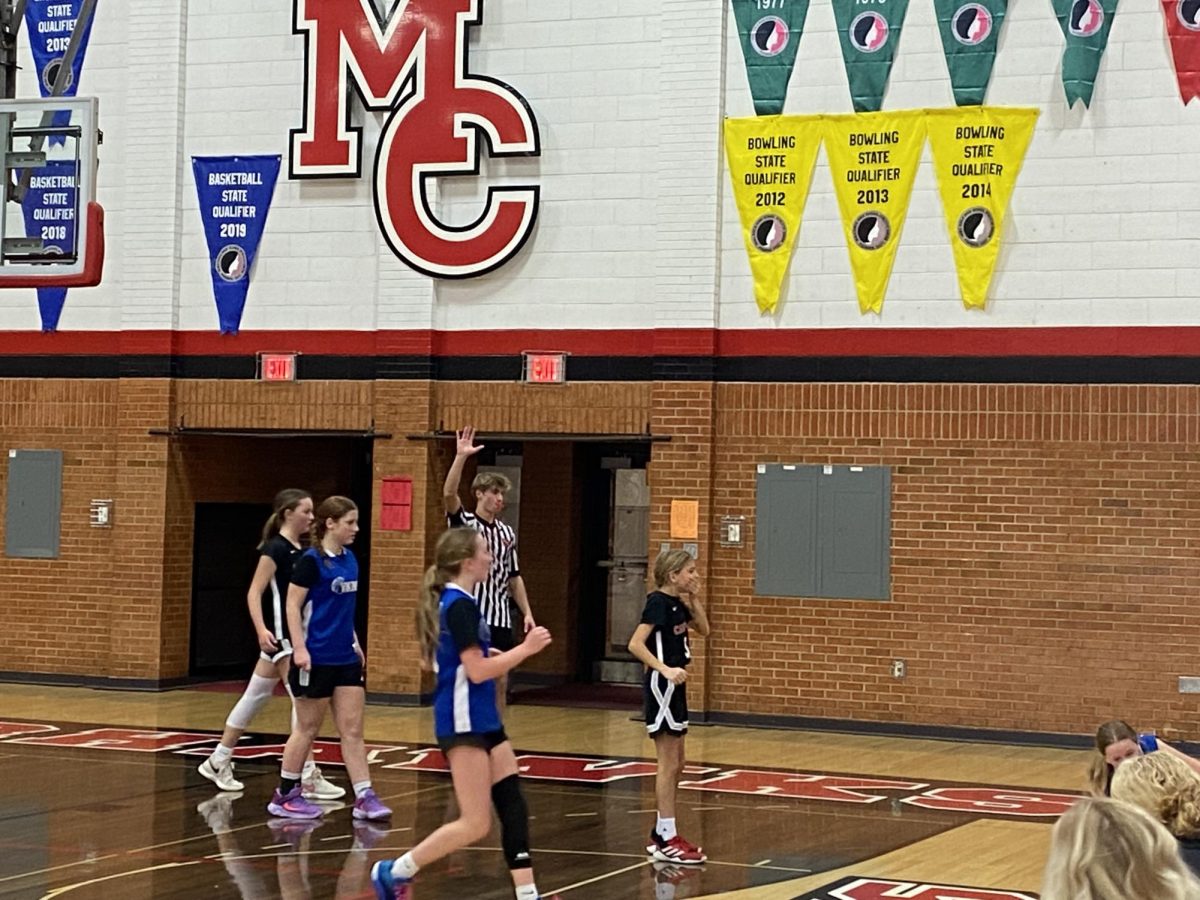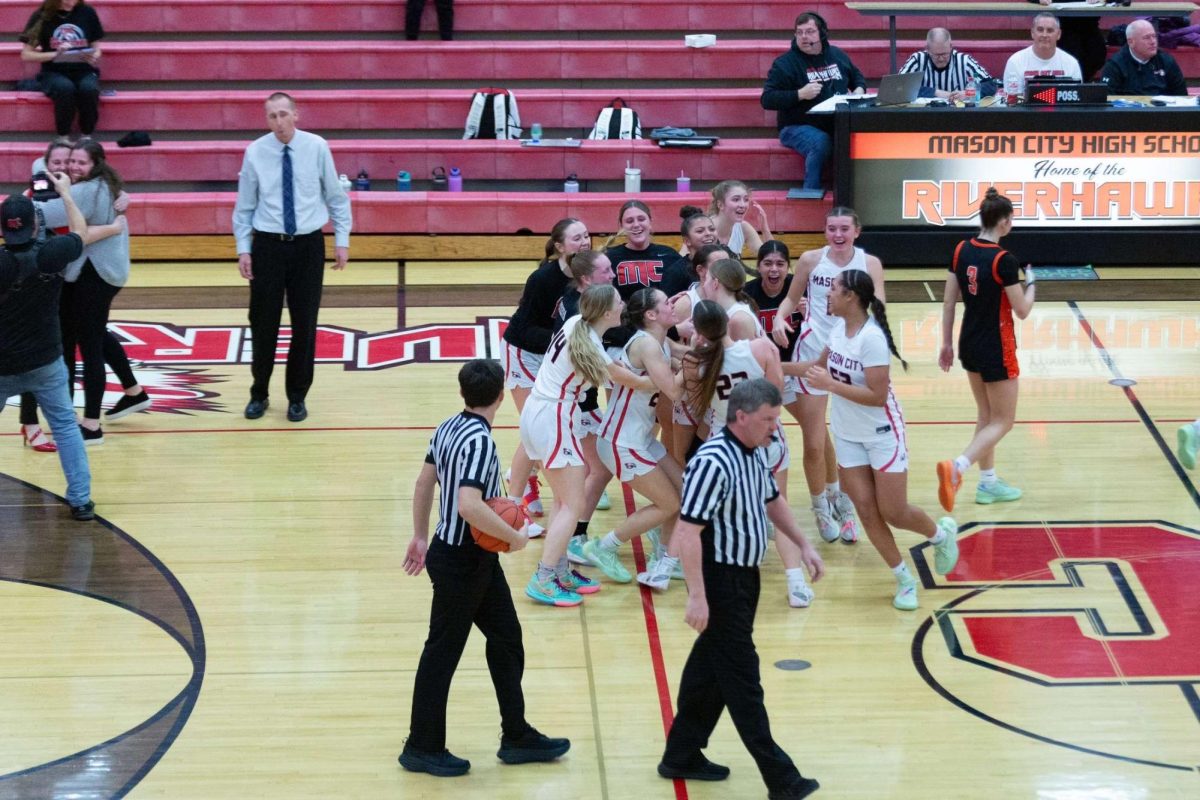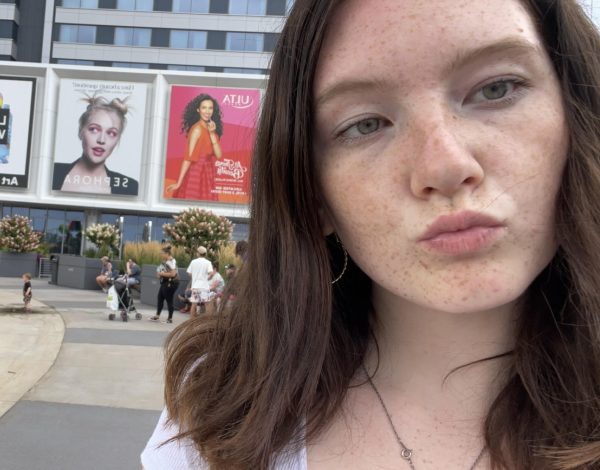The AI-generated banned books list at Mason City Community School District that made national headlines one year ago is a little bit shorter this school year. Six books- mostly classics- are back on shelves, after being thoroughly reviewed. These reinstated books are “The Color Purple”, “Beloved”, “I Know Why the Caged Bird Sings”, “Killing Mr. Griffin”, “The Absolutely True Diary of a Part-Time Indian”, and “Friday Night Lights”.
The list was created in the weeks before the 2023-24 school year after Iowa lawmakers passed Senate File 496 which bans books that describe or depict sex acts. It also prohibits discussion of gender identity and sexual orientation before 7th grade. Critics say the law is too vague and ignored the fact that schools already have policies in place for selecting books. At the time, Bridgette Exman Dunn, the assistant superintendent and curriculum director, used artificial intelligence to make a difficult job easier.
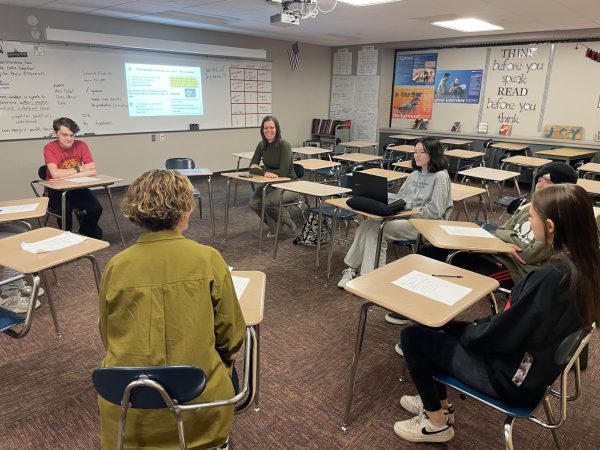
“I thought, how can I put the least amount of effort into this task that I don’t even wanna do? And how can I make it lowkey, and not an issue?” said Dunn. “I just used Chat GPT and I used a very narrow definition. I ended up with 19 of them. Then the next day it was in Rolling Stone.”
Dunn was previously a high school English teacher in Cedar Falls at Malcolm Price Laboratory School at UNI for 11 years, and Waverly Shell-Rock for 11 more years. This is her fourth year in Mason City. Because of her background in teaching high school English, she says the book bans break her heart.
“I just deeply, deeply believe in you all,” Dunn told a classroom of high school journalism students, “I do believe that the best thing we can do is give you broad access to information. If we give you access, you will do whatever you need to do with it to become the best version of you.”
Dunn says Senate File 496 brought concern to teachers about whether they could continue teaching some of the books they had been teaching for years, such as “The Color Purple”.
“The one topic that teachers brought up to me was that they were scared. They didn’t want to get in the middle of controversy,” said Dunn. “The [book banning] law was written in a way where teachers could lose their jobs, their careers, their livelihoods, and people were really afraid of that.”
Dawn Guritz teaches literacy at the high school level and says all books have their place, and those that have found their way onto a banned list are no different.
“I believe that we have so much to learn from the topics discussed in the books that have been written as well as will be in the future. Therefore, if we want to learn from the past, then we need to be well-rounded in information and form our own opinions,” said Guritz. “To do this one should consider reading a wide variety of books, including those that have found their way on the banned book lists.”
From 1637 to Today
Book banning isn’t new to America. Back in 1637, when early colonist, Thomas Morton, wrote the “New English Canaan” critiquing Puritan customs, it was banned by the Puritan government. However, according to PEN America, a literary group that supports authors and fights censorship, more than 10,000 books were banned in the 23-24 school year. That’s the highest recorded amount of books banned ever. That’s almost triple the amount of the previous school year: 3,362.
On its website, PEN America states Iowa was among the top two states that led this statistic, along with Florida. Between the two states, 8,000 books were banned. According to the organization, book bans end up censoring authors of color, women authors, and stories covering history, racism, as well as sexual and gender identity.
Among the books still on the banned list at MCHS are “Feed” by M.T. Anderson, “An American Tragedy” by Theodore Dreiser, “Crank” by Ellen Hopkins, and Margaret Atwood’s “Handmaid’s Tale”.
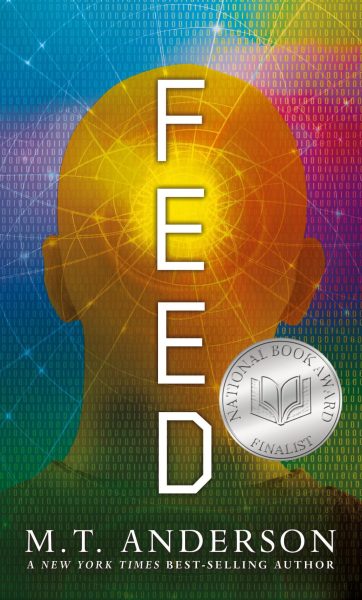
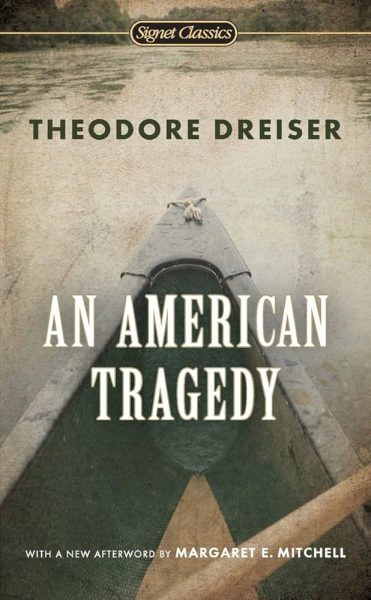
Caught in the Crossfire: Dunn Reflects on the Backlash of Book Banning and Encourages Shift in Focus
Looking back, Dunn says creating the banned book list was a difficult thing to do. Because of the Rolling Stone article, people started to see who was behind taking away the books they loved, even the authors themselves who wrote the books.
“It also was very hurtful for me to be so very publicly associated with it, I was called a lot of names,” said Dunn. “Harry Bissinger, the author of ‘Friday Night Lights’ blasted me. After a couple of long conversations, we landed in a good place. But that one was really hurtful to me because I taught his book, and handed his book to many sophomore boys that had never enjoyed a book in their lives.”
Dunn wrote an opinion piece for the New York Times about her experience in September of 2023. In it, she stated, “I have a million better things to do with my time than keep kids from books.”
Today, that piece has been read by people all around the world. More than 15-hundred people have commented on it. In her discussion with MCHS students, she said the focus should change to the real problem.
“I don’t think we have a banned books problem,” said Dunn, “I think we have a reading books problem.”
